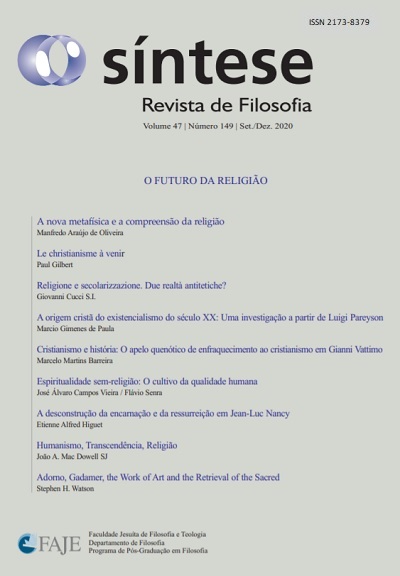THE DECONSTRUCTION OF THE INCARNATION AND RESURRECTION IN JEAN-LUC NANCY
DOI:
https://doi.org/10.20911/21769389v47n149p635/2020Abstract
In this article, I intend to further Jean-Luc Nancy's vision of the de- construction of Christianity, by focusing on the understanding of the incarnation and resurrection. In the first part, I try to present the phenomenology of the body and touch, which supports the interpretation of the central dogmas of Christianity: Bodies are the limit, the open space, or the place and being of existence. In the incarnation, the body is the event of the spirit, that is, the spirit does not remain out of the world, but opens itself in the midst of it. Deconstruction begins in the effacement of God in man, who is the sense of the world. However, deconstruction needs to further the overcoming of the body conceived as sign of a meaning understood as interiority, beyond all meaning and representation. In turn, the deconstructed resurrection does not involve goÂing through death but, by plunging into it without return, resurrecting death. In the final considerations, I wish recap what has been deconstructed, ending with some reflections on the future of Christianity.Â


















